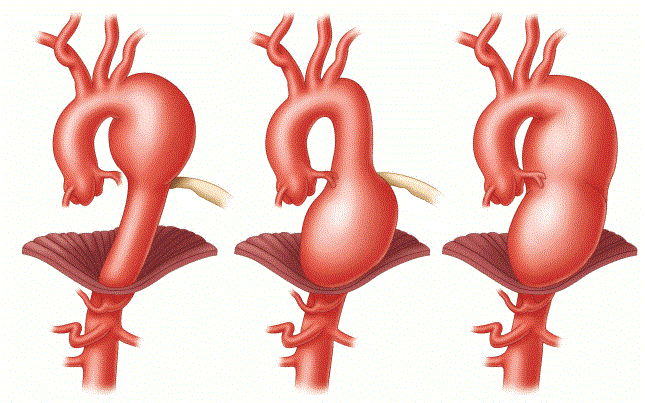Learn all about abdominal aortic aneurysm and its possible symptoms!
An aortic aneurysm is Characterized by dilation of aorta to greater than 1.5 times of normal size.An aneurysm is a protrusion of an artery because of a fragility of the arterial wall and high blood pressure.Abdominal aortic aneurysm is serious medical condition.Most common places of aneurysms in the aorta are its abdominal and thoracic (within the chest) portions.
Aneurysms of arteries present within the brain is second rank in frequency after those of the aorta.Causes of abdominal aortic aneurysm includes fragility of an arterial wall due to infection, high blood pressure, arteriosclerosis, trauma, injury, syphilis in its later stages. Aneurysms occur most often between the ages of 40 and 70 often more in men than in women.

Symptoms of Abdominal aortic aneurysm
The initial symptoms of abdominal aortic aneurysm may be few and slight for example mild shortness of breath, pain on exertion, irregular heart beat and palpitation. If location of aneurysm is present near the outlet from the heart then the symptoms remain mild to moderate and does not seem to be severe.There are number of techniques thorough which abdominal aortic aneurysm can be identified for example digital chest x-ray, CT-scan and radio contrast imaging.
If aneurysm is present in the arch of aorta then the symptoms may become severe for example hoarseness, severe pain, characteristic brassy cough, swelling of one arm or the face and neck, difficulty in breathing, distended veins in the neck and upper chest and bulging of the chest wall which may turns into pulsating tumor on latter stages.
If the aneurysm is located in the descending portion of the thoracic aorta, there may be no symptoms unless it becomes large enough to press on one or more ribs or on the backbone. Such a pulsating pressure causes bone degeneration to take place, accompanied by much pain.Aneurysms located within the chest can be treated by the modem methods of vascular surgery.
Some other symptoms of abdominal aortic aneurysm includes
- Pain in chest and abdomen
- Pulsating sensation in abdomen
- Bluish discoloration of toe due to blood clotting
- Feeling of fever
- Fatigue
- Weight loss
- Palpitation
- Irregular heart beat
 Health & Care Information
Health & Care Information 

